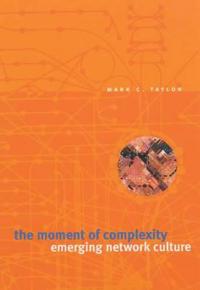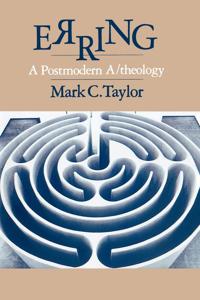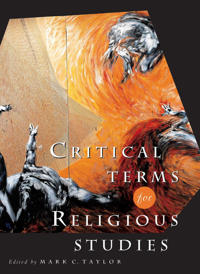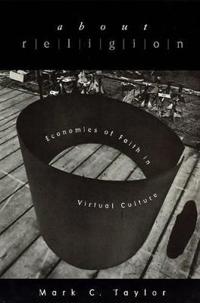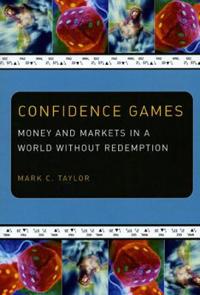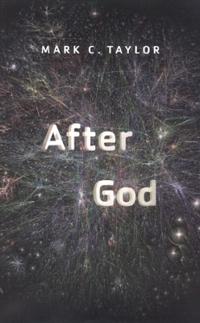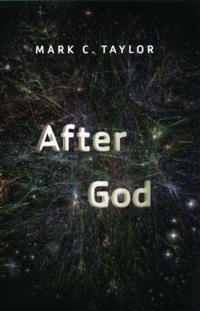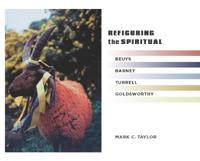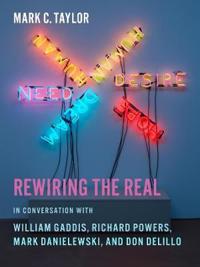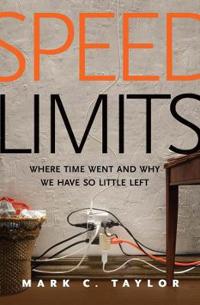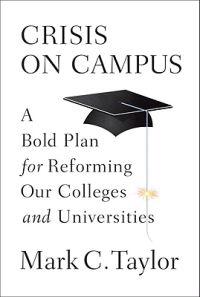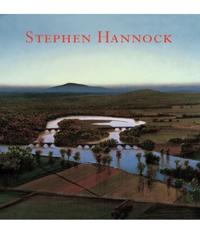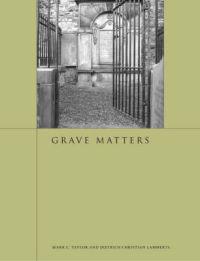The Moment of Complexity (Häftad)
avMark C. Taylor
ISBN: 9780226791180 - UTGIVEN: 200309We live in a moment of unprecedented complexity, an era in which change occurs faster than our ability to comprehend it. With "The Moment of Complexity", Mark C. Taylor offers a map for the unfamiliar terrain opening in our midst, unfolding an original philosophy of our time through a remarkable syn[...]
Erring (Häftad)
avMark C. Taylor
ISBN: 9780226791425 - UTGIVEN: 198704""Erring "is a thoughtful, often brilliant attempt to describe and enact what remains of (and for) theology in the wake of deconstruction. Drawing on Hegel, Nietzsche, Derrida, and others, Mark Taylor extends--and goes well beyond--pioneering efforts. . . . The result is a major book, comprehensive [...]
Critical Terms for Religious Studies (Pocket)
avMark C. Taylor
ISBN: 9780226791579 - UTGIVEN: 199808A century that began with modernism sweeping across Europe is ending with a resurgence of religious beliefs and practices throughout the world. Wherever one looks today, from headlines about political turmoil in the Middle East to pop music and videos, once cannot escape the pivotal role of religion[...]
About Religion (Häftad)
avMark C. Taylor
ISBN: 9780226791623 - UTGIVEN: 199907Travelling from high culture to pop culture and back again, this book approaches cyberspace and Las Vegas through Hegel and Kant and reads Melville's "The Confidence-Man" through the film "Wall Street". As juxtapositions and associations proliferate, formerly uncharted territories of virtual culture[...]
Confidence Games (Pocket)
avMark C. Taylor
ISBN: 9780226791685 - UTGIVEN: 200805In "Confidence Games", Mark C. Taylor posits that money and markets do not exist in a vacuum but grow in a profoundly cultural medium, reflecting and in turn shaping their world. Bringing John Calvin, Hegel, and Adam Smith to Wall Street by way of Las Vegas, Taylor first explores the historical and [...]
After God (Inbunden)
avMark C. Taylor
ISBN: 9780226791692 - UTGIVEN: 200711Religion, Mark C. Taylor argues in "After God", is more complicated than either its defenders or critics think and, indeed, is much more influential than any of us realize. Our world, Taylor maintains, is shaped by religion even when it is least obvious. Faith and value, he insists, are unavoidable [...]
After God (Pocket)
avMark C. Taylor
ISBN: 9780226791715 - UTGIVEN: 2009-03Religion, Mark C. Taylor argues in "After God", is more complicated than either its defenders or critics think and, indeed, is much more influential than any of us realize. Our world, Taylor maintains, is shaped by religion even when it is least obvious. Faith and value, he insists, are unavoidable [...]
Refiguring the Spiritual (Inbunden)
avMark C. Taylor
ISBN: 9780231157667 - UTGIVEN: 201203Mark C. Taylor provocatively claims that contemporary art has lost its way. With the art market now mirroring the art of finance, many artists create works solely for the purpose of luring investors and inspiring trade among hedge funds and private equity firms. When art is commodified, corporatized[...]
Rewiring the Real (Inbunden)
avMark C. Taylor
ISBN: 9780231160407 - UTGIVEN: 201302Digital and electronic technologies that act as extensions of our bodies and minds are changing how we live, think, act, and write. Some welcome these developments as bringing humans closer to unified consciousness and eternal life. Others worry that invasive globalized technologies threaten to dest[...]
Recovering Place: Reflections on Stone Hill (Inbunden)
avMark C. Taylor
ISBN: 9780231164986 - UTGIVEN: 2014-03-21Speed Limits (Inbunden)
avMark C. Taylor
ISBN: 9780300206470 - UTGIVEN: 2014-10We live in an ever-accelerating world: faster computers, markets, food, fashion, product cycles, minds, bodies, kids, lives. When did everything start moving so fast? Why does speed seem so inevitable? Is faster always better? Drawing together developments in religion, philosophy, art, technology,[...]
Crisis on Campus: A Bold Plan for Reforming Our Colleges and Universities (Inbunden)
avMark C. Taylor
ISBN: 9780307593290 - UTGIVEN: 201008Stephen Hannock (Inbunden)
avMark C. Taylor, Martha Hoppin, Garrett White
ISBN: 9781555952914 - UTGIVEN: 2009-05Stephen Hannock is a contemplative artist, constantly bringing a fresh vision and new insight into his studies of light and reflection reminiscent of the Luminist paintings of the 19th century. His landscape paintings, subtly lit with the rising sun's rays over flooded waters, slowly build with the [...]
Grave Matters (Häftad)
avMark C. Taylor, Dietrich Christian Lammerts
ISBN: 9781861891174 - UTGIVEN: 2002-03This text presents a meditation on death and the significance of gravesites and memorials for contemporary society. It includes photographs of the graves of 160 modern artists, writers, philosophers and musicians.[...]

